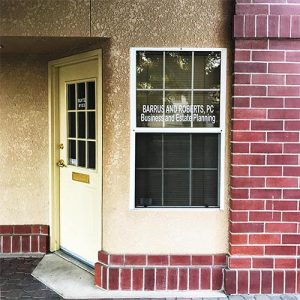
It’s not easy to talk about medical decisions, especially when they involve “what if” scenarios most of us would rather avoid. But the reality is, accidents happen, illnesses come without warning, and sometimes we need someone else to step in and speak for us. That’s where an advanced health care directive comes in.
In simple terms, an advanced health care directive (often called an AHCD) is a legal document that lets you spell out your wishes for medical care if you can’t communicate them yourself. It also lets you name someone you trust to make decisions on your behalf. Here in Clovis, families often tell me that having one in place brought them peace of mind—not just for themselves, but for their loved ones too. At Barrus and Roberts, PC, we’ve helped many in our community put these directives together, and you can always find more information through www.brlawyer.net.
An AHCD does two main things. First, it lets you outline what kind of medical care you’d want (or not want) if you can’t speak for yourself. That could include choices about life support, resuscitation, or long-term care. Second, it allows you to appoint someone—often called your “agent” or “health care proxy”—to make decisions for you if you’re unable.
Without one, your family might be left guessing what you would have wanted. Worse, they might disagree with each other, which only adds stress during an already difficult time. With a directive in place, everyone knows your wishes, and there’s no need to fight or wonder.
Clovis has a strong sense of community and family. Generations often live close together, and decisions about care can affect not just the individual but the whole family dynamic. Having an advanced health care directive helps keep those family ties strong, because it removes uncertainty and prevents unnecessary conflict.
I once met with a family at Clovis Community Medical Center who were torn about whether to continue aggressive treatment for their loved one. The patient hadn’t left any instructions, so the family was left arguing at the worst possible moment. They later told me they wished they’d had a clear directive to guide them. It’s an all-too-common story, but one that can be avoided.
A lot of people hesitate to create an AHCD because they’re not sure what it actually means for them. Here are a few questions I hear often:
Do I lose control if I sign one? No. As long as you’re able to make your own decisions, you’re always in charge. Your directive only kicks in if you can’t communicate your wishes.
Is it only for the elderly? Not at all. Anyone over 18 can benefit from having one. Life is unpredictable, and an AHCD is just a way of being prepared.
Can I change it later? Absolutely. You can update or revoke your directive at any time as long as you’re able to make decisions.
Do I need a lawyer? Technically, you don’t have to, but having one ensures the document is clear, valid under California law, and tailored to your needs.
When creating an advanced health care directive, you’ll want to think about a few key things:
Who to name as your agent. This should be someone you trust completely, who understands your values and is willing to honor your wishes—even if those choices are difficult.
The kinds of medical treatments you would or would not want. This might include resuscitation, ventilators, feeding tubes, or palliative care.
Your wishes around organ donation. Some people choose to include this in their directive.
How specific you want to be. Some folks prefer to leave general guidelines, while others want to get very detailed. Both approaches can work—it depends on what feels right to you.

One of the biggest benefits of an AHCD is avoiding family conflict. I’ve seen cases where siblings disagreed about care, and because no directive existed, the situation turned into a painful tug-of-war. On the other hand, I’ve also seen families gather in relief, grateful that their loved one’s directive gave them clarity.
In Clovis, where families are often tight-knit and connected through church groups, schools, and community ties, the last thing anyone wants is for medical decisions to become a source of division.
Living in Clovis also means having access to local hospitals and providers who are familiar with advanced health care directives. Whether it’s Clovis Community Medical Center or one of the nearby facilities in Fresno, medical staff know how to honor these documents. That’s another reason it’s important to make sure your directive is clear, current, and easy to access.
And because California law has specific requirements, using a properly prepared directive ensures there won’t be any hiccups when it’s needed most.
A Clovis couple in their early 60s came to us after a close friend had a medical emergency. They realized they had never talked about what they’d want if something similar happened to them. Together, we walked through their values, concerns, and choices. They each created an AHCD, naming each other as agents and writing down their preferences.
A year later, one of them faced a surgery with complications. Because the directive was already in place, there was no confusion at the hospital. Decisions were made quickly, and the family told us they were relieved to have avoided unnecessary stress.
At Barrus and Roberts, PC, we know these conversations aren’t easy. They touch on fears and possibilities that most of us would rather not think about. But we also know how much peace comes from having things settled. We’ve helped Clovis families prepare directives that reflect their values and protect their loved ones from uncertainty.
Our approach is simple: we listen first, explain clearly, and make sure you understand your options. Whether you want something straightforward or more detailed, we’ll walk you through it step by step.
You can always reach us at www.brlawyer.net. Taking this step doesn’t mean you’re expecting the worst—it just means you’re planning wisely for the future.